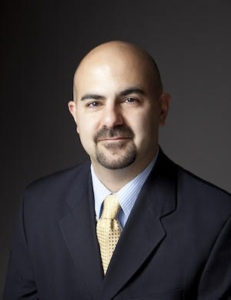Christa Rodriguez II Campus Life Editor

The last Common Hour of the semester was held this past Thursday, with Robert Shibley’s talk “Liberty in Peril: The Free Speech Climate in Higher Education Today”. Shibley is the executive director of the Foundation for Individual Rights in Education (FIRE).
Shibley has spent 12 years at FIRE and travels to college campuses frequently to speak about first amendment rights. In his talk, he argued against policies that restrict free speech, specifically in colleges and universities, and provides examples of cases for which FIRE has provided legal assistance.
Shibley said there is a “very serious problem of speech codes” on college campuses. According to him, the simple act of writing or saying something unpopular can get one in trouble.
FIRE reviews the speech codes of many universities and notes when they are unconstitutional, which are given a “red light” rating. The speech codes that do not violate the constitution are given a “green light,” while those in between are given a “yellow light.” Out of all the top schools that FIRE reviews, only 23 schools have a green light rating on their speech codes.
He highlighted the fact that students should theoretically have less restricted first amendment rights on public school campuses, but that private schools have more of an ability to restrict free speech. Shibley commented that private schools do not have to respect first amendment rights “as long as they are honest about it.”
He said this means private schools can kick students out for things they do not like. Instead of giving these schools a rating, FIRE just gives a warning. FIRE tries to get private schools to be less restrictive, because, according to Shibley, people do not like their lives regulated, and their speech codes may not be attractive to people looking to attend their school.
On the other hand, colleges are legally required to address harassment, and while many schools choose to ignore this issue altogether, Shibley feels some schools go too far. He gave examples of several obscure school codes, saying they hold “students accountable for conflicts they can’t see.” Saying words like “sweetie” or eating food suggestively, things that were, in Shibley’s mind, clearly not harassment were in violation of certain schools’ policies. Shibley asked, “how would you even defend yourself from that?”
Shibley said that FIRE uses “reasonable person standards” to assess restrictions that are intended to protect people, but may go too far. He remarked that there are two sides to controversial issues, where one side of the argument is always going to be offensive to a person opposing that side.
He believes it is hard not to offend or embarrass anyone, especially over the four years one spends in college. Therefore, having too many limits on speech for fear of offending others is, to him, a violation of students’ rights and also shelters them from the adult world.
He gave additional examples of restrictions of students’ speech, which he believes makes them “highly discouraged” from sharing their opinions. One student posted a collage on Facebook opposing his university’s president and, as a result, was expelled.
Other students got in trouble for mocking politicians with cat memes. Shibley saw this specific case as problematic in terms of students’ ability to seriously critique politicians intellectually, when they could not even make fun of them in the form of a meme. Another college prohibited any e-mails about subjects such as politics, race, or even hair color.
Shibley argued that these policies represent a “condescending paternalism.” In other words, colleges want to protect their students from offensive speech, which Shibley believes does not prepare them for real life.
He compared this to an overportective parent that means well, but shelters their child too much in the process. This creates the “boy who cried wolf” phenomenon because colleges seem to “dangerously trivialize” real incidents.
He added that faculty may have some limits, too. Shibley said that many universities punish professors for using controversial materials in class, which the universities claim hurt the students’ education. While Shibley assented that institutions of higher education are allowed to have reasonable time and place limits on free speech, he believes that many times they misuse this type of judgment and take things out of hand.
Shibley concluded his talk by saying that people and institutions have to have the ability to recognize when they are wrong. He suggested that if censorship continues on college campuses, it can become more prominent in other institutions’ policies, which in turn will be harmful to people’s first amendment rights. Eliminating speech restrictions would give students greater freedom.
First-year Christa Rodriguez is the Campus Life Editor. Her email is crodrigue@fandm.edu.